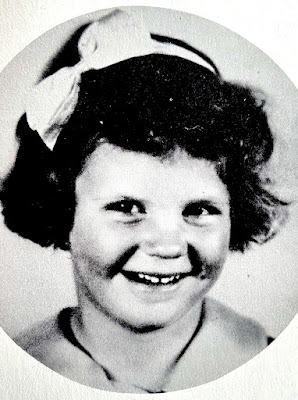Aurelia Plath taught at Boston University for 29 years but never made much
money. Paying for Sylvia's needs and wants, and, after Sylvia's death, annual visits to the
motherless grandchildren in England, smoked Aurelia's accounts down to their filter. Boston University forcibly retired employees at age 65, so a year before that, in 1970, Aurelia found another job teaching secretarial skills at Cape Cod Community
College, 80 miles from Wellesley, where she could teach full-time until age 70. She was too old to enroll in its pension program, but without the job she'd have no income. [1]
What, didn't Aurelia ever get any money for being Sylvia Plath's mother?
Sylvia died without writing a will, so her husband Ted Hughes inherited Sylvia's
bank accounts and property, valued shortly after Sylvia's death in 1963 at 2,147 English pounds. Hughes phoned Aurelia saying
he was willing to return to Aurelia and to Sylvia's Aunt Dottie and to Olive
Higgins Prouty the cash they gave Sylvia during her final
desperate months. Aurelia told him, "Keep it for the children." Hughes also by default owned the copyrights to all of Sylvia's writings, the most valuable asset in Sylvia's estate. He assigned his sister Olwyn the job of managing these rights.
Aurelia had other assets, in 1963 worthless except to a sentimental
mother. Sylvia had told Aurelia to
throw out or use for scrap the accumulated junque of Sylvia's childhood and
youth: letters from camp, early manuscripts, schoolwork, artwork, childhood
diaries, paper dolls, and Sylvia's long ponytail, to name a few. Sylvia left these items with her mother when Sylvia settled in England. The material was destined
to balloon in value after Aurelia's worst nightmares came true.
Appalled after reading The Bell Jar, published only in England, Aurelia refused to allow Ted and Olwyn Hughes to sell it to a U.S. publisher. Olwyn nagged Aurelia for three years. In 1970 Aurelia gave in, but demanded and won in exchange the right to edit and publish a volume of Sylvia's letters to her family. Aurelia owned the letters, but Sylvia's estate owned what was written on them. The deal was made, with hard feelings all around.
There is some evidence that Aurelia was to receive from publishers Harper & Row a percentage of royalties from Sylvia's books Crossing the Water or Winter Trees (both 1971) or even The Bell Jar, but the checks were so small they disgusted her.
Aurelia quit Cape Cod Community College to edit Sylvia's letters for Letters Home, receiving from publishers Harper & Row a
$5,000 cash advance. [2] Aurelia immediately spent $2,400 for new siding for the house in Wellesley, and for two years worked at editing and typing the Letters
Home manuscript, published in 1975.
In March 1977, with the money from Letters Home dwindling, Aurelia sold the bulk of her stored material, including the original letters from Sylvia to her family. A broker sold them to Indiana University's Lilly Library for a sum kept secret. Aurelia received payment in installments. (Why Indiana? The Lilly Library already owned Plath manuscripts a London bookseller had purchased from Sylvia Plath
in 1961.) Aurelia also sold items the
Lilly Library later purchased and added to its now-resplendent Sylvia Plath
archives, where pack-rat Aurelia's storehouse of Sylvia's junque is today so valuable one must wear gloves
to handle it.
Aurelia felt comfortable enough to vacation in Antigua in 1978 and 1979. Aurelia told a correspondent in
1979 that she received no money from her daughter's writing with the exception
of Letters Home [3] and, without mentioning the Lilly Library, said she had "eked out" a few years of living on Sylvia's name, hoping she wouldn't outlive that money. In 1988 Aurelia told Elizabeth Compton Sigmund she was receiving interest income from the sale of the letters. [4] A 1979 play based on Letters Home paid Aurelia $750, half of the profit from its New York run. [5] A later production netted her $291.63.
In 1980 Aurelia wrote that she still wore some of
Sylvia's clothes. [6] Before selling the Wellesley house and furniture and moving to an apartment in the
North Hill retirement complex, Aurelia in December 1983 donated books and papers to Smith
College's Plath collection. These included Aurelia's own Sylvia-related papers and family documents, and letters and clippings about the effect of Sylvia's life and death on her family and friends. This got Aurelia a tax break that year when she sold her house.
In exchange for all of a resident's funds, North Hill agreed to house and care for residents, as needed, until they died. [7] This sounded to Aurelia like a good deal. Aurelia died at North Hill, of Alzheimer's disease, in 1994.
[1] ASP to TH, 11 March 1973, Emory.
[2] Journal of Mary Clarke, 11 October 1973, Smith College. There is evidence that Olwyn Hughes opposed the $5,000 advance going to Aurelia.
[3] ASP to Mary Ann Montgomery, 30 January 1979, Lilly.
[4] Elizabeth Compton Sigmund phone interview with ASP, February 1988, Smith.
[5] ASP to Montgomery, 23 November 1979.
[6] ASP to Montgomery, 25 June 1980.
[7] ASP to Carol Hughes, 17 May 1983, Emory.





